2021 was a year when key decision-makers, institutions and the public said no to the onshore oil and gas industry, often for the first time.

- Planning committees refused all but one decision on onshore sites in the past 12 months
- The industry failed to convince the government to lift the moratorium on fracking in England
- For the first time, fossil fuels were referred to in a climate agreement from a COP summit
- There were nationwide calls on councils to stop investing pension funds in fossil fuels
- Five years after shale gas licences were issued, no wells have been drilled
Councils said no
Five out of six applications on onshore oil and gas scheme that went before planning committees in 2021 were refused. These included major proposals for production and drilling. All the refusals went against the advice of planning officers. For at least two onshore companies, it was the first time any of their proposals had been turned down.
West Newton-A
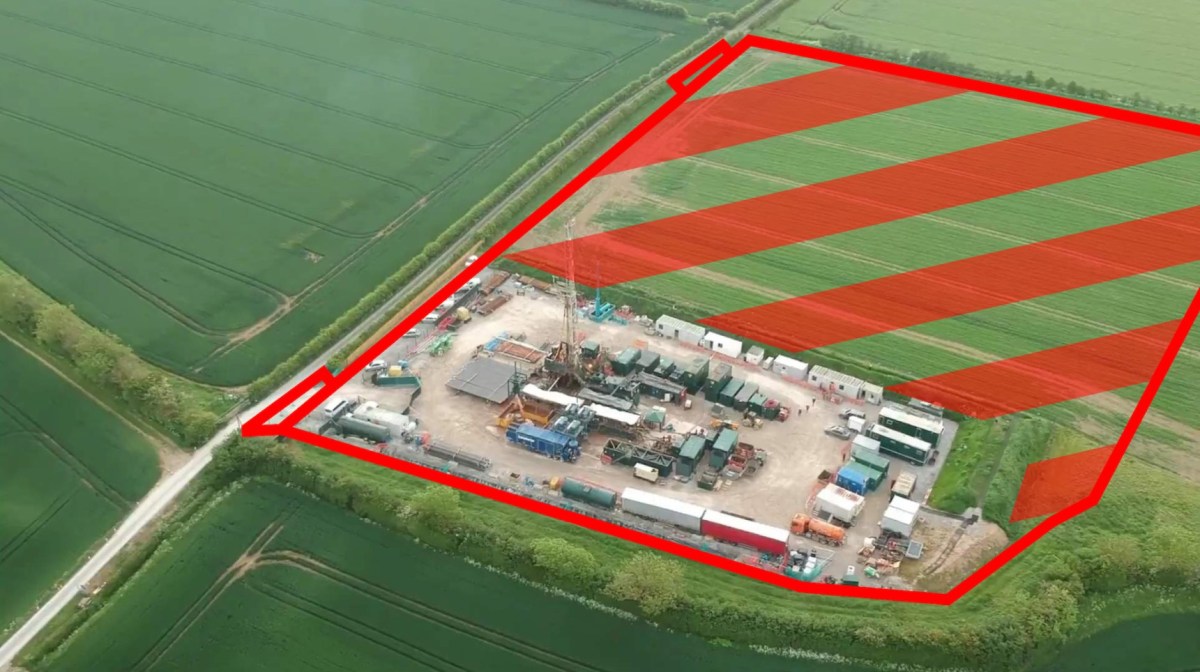
In January, Rathlin Energy announced plans for 20 years of oil production and six new wells at West Newton-A in East Yorkshire – making it the biggest onshore hydrocarbon project in recent years. Despite this, the local government secretary ruled that the application did not need an environmental impact assessment. Both the company and East Riding of Yorkshire Council refused to disclose initial discussions on the expansion plans.
In response to local concerns, Rathlin promised to reduce the number of daily tanker visits during production from 25 to 10. But after the plans were published in July, local councils said for the first time they would fight the application together.
On 30 September, councillors voted by seven to five to refuse the application, against the advice of planning officers. This was the first time East Riding of Yorkshire Council had refused a Rathlin Energy application.
Rathlin announced it would revise the plans, with four new wells instead of six, and submit a new application, while keeping its options open on an appeal. (More details on the scaled back scheme here). Rathlin’s planning permission for the site has now expired but the council said it was not “proportionate or sustainable” to insist the site was returned to farmland.
Misson
In January, IGas sought three more years of planning permission at its Misson shale gas site in Nottinghamshire. Residents accused the company of a “speculative, misleading and unsound” application.
In July, twelve councillors voted to refuse permission and one abstained, again against the advice of planning officers.
Opponents said they were delighted by the decision. IGas later announced it would not appeal and it is reportedly in talks with Nottinghamshire County Council about restoring the site.
Biscathorpe

In March, Egdon Resources submitted an application for 15 years of oil production at Biscathorpe in the Lincolnshire Wolds area of outstanding natural beauty.
The scheme was described as “utterly incompatible” with climate goals by the Bishop of Grimsby, academics and business leaders. The partnership running the Wolds Area of Outstanding Natural Beauty said the plans would “cause significant and long-term harm”. The local MP said the scheme was “completely at odds” with the character of the local area.
On 1 November, as world leaders made climate pledges at the COP26 conference, Lincolnshire councillors voted to refuse the Biscathorpe plans, again against the advice of planning officers.
This was the first time Lincolnshire County Council refused planning permission to Egdon. The company said it was likely to appeal but had not done so at the time of writing.
Balcombe
Planners at West Sussex County Council backed Angus Energy’s plans for a well test at the Balcombe oil site.
But in March, councillors unanimously refused planning permission. They said the proposal represented a major development in the High Weald Area of Outstanding Natural Beauty, for which there were no exceptional circumstances, and it was not in the public interest.
In August, Angus said it would appeal. So far, the Planning Inspectorate, which handles appeals, has not published any details on Balcombe.
Arreton
2021 opened with a public consultation on revised plans for UKOG’s application for oil exploration at Arreton on the Isle of Wight. The island’s MP, Bob Seely, and the council’s environment leader opposed the plans, as did six parishes near the site and a reported 3,000 individuals.
In October, councillors voted unanimously to refuse the Arreton plans. This was again against the advice of planning officers, who said economic benefits outweighed environmental harm. So far, UKOG has not publicly said whether it will appeal.
Global calls for climate change action at COP26

The biggest event of 2021 was the COP26 international climate summit in Glasgow.
As a reporter at the talks, my overriding impression was the huge public desire for international action to tackle climate change and the failure of world leaders to deliver what was needed.
On the middle weekend of the talks, there were 300 protests, spread across every continent in the world, including the world’s largest climate march in Glasgow with an estimated 100,000 participants.

The activist, Greta Thunberg, told a rally in the city that COP26 had turned into a PR event and a global greenwash festival, “a two week-long celebration of business as usual and blah blah blah”. Analysis showed that the fossil fuel industry had the biggest delegation at the talks, with more than 500 lobbyists from some of the largest oil and gas companies.
The conference saw the launch of a group of countries committed to phasing out oil and gas. Boris Johnson said the UK needed to move beyond oil and gas as soon as possible but he did not join the group.
There were deals to end public funding for unabated fossil fuels by 2022, stop deforestation and set rules for carbon markets. There were also pledges to phase out coal-fired power, cut methane emissions in oil and gas production, and improve transparency on emissions reduction. And there were multiple sound-bites from world leaders. The COP26 president, Alok Sharma, said the “end of coal is in sight” and that financiers were “the new Swampys”.
But for many of those at or watching the closing session, the largest-ever COP failed to act in line with the urgency and scale required. Some observers feared that the Glasgow Accord was a “death warrant” for countries in the climate frontline.
In the final hours, the agreements on coal and fossil fuel subsidies were weakened. The summit failed to agree a package of finance for the loss or damage caused by climate change. And a report from Climate Action Tracker predicted that global temperatures would rise by at least 2.4C, despite pledges made at COP26 and the commitment to keep the 1.5C limit alive.
For more on climate change, see the Climate policy and warnings section below
Fracking news and views
2021 marked five years since the licensing of thousands of square miles of English countryside for fracking. But by the anniversary in July, the new licences have still produced no wells and no oil or gas.
Increasing global gas prices prompted fracking supporters to call for a revival in the UK shale gas industry and an end to the moratorium on fracking in England (here, here and here). But ministers repeated they had no plans to lift the moratorium.
The onshore industry threatened to sue the government, sending a legal letter before action. The business department responded in December replied:
“We maintain our position that fracking will not be allowed to proceed in England unless compelling new scientific evidence is provided.”
Two years after the 2.9ML fracking-induced earthquake at Cuadrilla’s Preston New Road site, the company said there was no way forward for fracking. Another would-be fracking company, IGas, wrote off £10m from shale gas exploration assets. Third Energy, which intended to frack in North Yorkshire, appointed a former leading opponent as a director to help it go green.
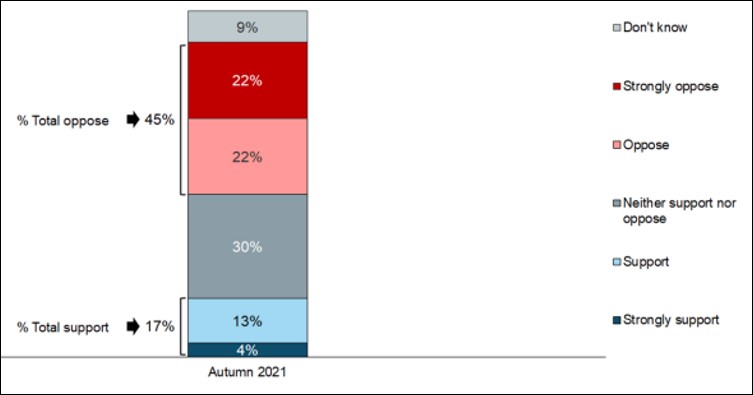
People continued to oppose fracking. The latest government survey of public attitudes found that 45% opposed fracking, compared with 17% who supported it. Fears about fracking had also hit public trust in climate technologies, such as carbon capture and storage, according to a study by Cardiff University.
MPs quizzed the HSE over its scrutiny of the silica dust risk at Cuadrilla’s fracking site at Preston New Road in Lancashire. The HSE said it did not inspect the management of silica sand at the site.
During 2021, Egdon Resources reported it had carried out a small scale frack (also known as a proppant squeeze) at its site at Wressle in North Lincolnshire. The company said the operation had been completed safely and successfully.
A report published in April, said legal definitions of fracking the UK were “limited, ambiguous and inconsistent”. The authors, a campaigner, lawyer and geophysicist, called for a new definition to include any well stimulation technique that made rocks more permeable.
Opposition and protest
Scaled-back injunction
Campaigners claimed victory in a long-running legal battle against one of England’s widest-ranging injunctions against protests at oil and gas site.
A judge “radically scaled back” the injunction sought by UKOG against protests at sites in Sussex and Surrey. The final order was issued in June preventing five named individuals from trespass, obstruction of the entrance and climbing onto lorries.
New laws on protest
In March, the government announced new curbs on the right to protest in its Police, Crime, Sentencing and Courts Bill. Opponents described it as an assault on human rights and “rushed and ill-judged”. The Joint Committee on Human Rights urged the government to drop plans to ban noisy protests.
There were “Kill the Bill” protests throughout the UK and a petition against the legislation received more than 600,000 signatures. New crimes were added when the bill went to the House of Lords. These included the protest tactic of locking-on and going equipped to lock on.
Protests continued
In January, the CPS dropped charges against two campaigners who locked themselves together outside the Horse Hill oil site in Surrey. In April a campaigner was cleared of trespass after climbing the rig at the site. Monthly Sunday Faith at the Gate protests continued outside Horse Hill.
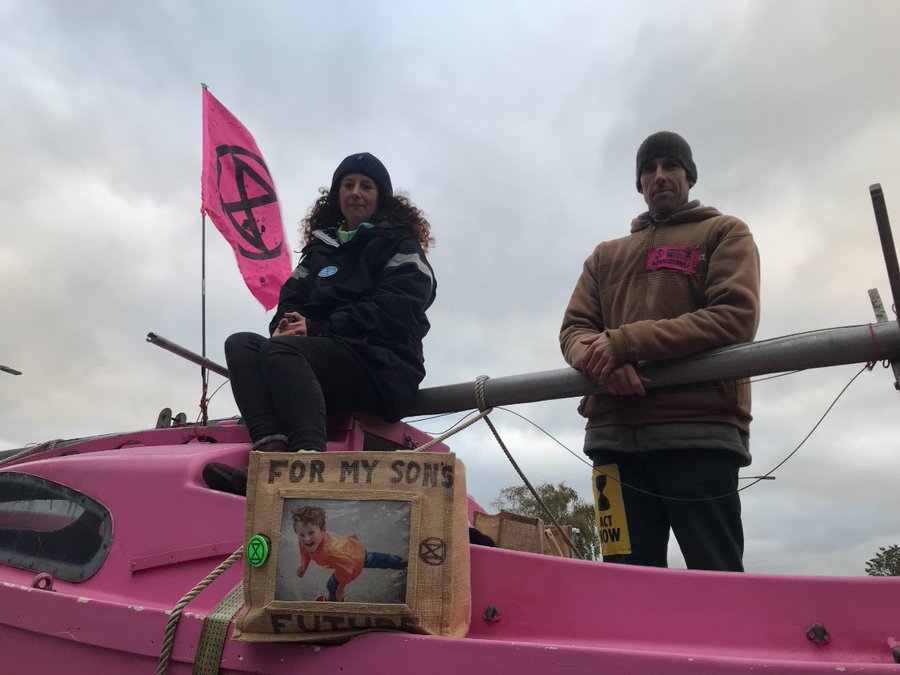
Climate activists blockaded BP’s oil terminal at Hamble in June and the ExxonMobil complex at Fawley in August. In October, Fawley was again blockaded by protesters, including two British Olympians, sailor Laura Baldwin and gold medal winning canoeist Etienne Stott.
Nine Insulate Britain activists were jailed in November for breaching a court order banning them from protesting on the M25.
In August, a huge pink table was installed in central London, in protest at investments in fossil fuels. This was followed by a national day of action in cities throughout the UK in November. Research by Friends of the Earth and the Platform environmental collective found that local government pension funds held investments of £9.9 billion in fossil fuels, even though three-quarters of the authorities had declared a climate emergency.
The anti-fracking campaigner, Joe Boyd, published an account of his experiences on the protest frontline in The Road to Kill the Bill: standing up for our rights to protest.
Permissions and other applications
The Environment Agency (EA) allowed IGas to dispose of radioactive waste water at its site at Singleton in the South Downs National Park.
The EA sought public comments (in March and December) on similar plans by Angus Energy to reinject waste water into a well at its Brockham site. Despite local opposition, the EA said it was minded to approve the plans. Surrey County Council confirmed that Angus Energy would need planning permission to inject formation water from other hydrocarbon sites at Brockham.
Lincolnshire County Council approved a planning application by Angus Energy for a sidetrack at its Saltfleetby B wellsite.
Egdon Resources sought a third extension to the planning permission for its oil site at North Kelsey, in Lincolnshire, where there’s been no work apart from a section of access track. Angus Energy sought consent to reconfigure the Saltfleetby site and to produce oil from a sidetrack well at Brockham. Decisions on all three applications are expected in 2022.
Production and operations
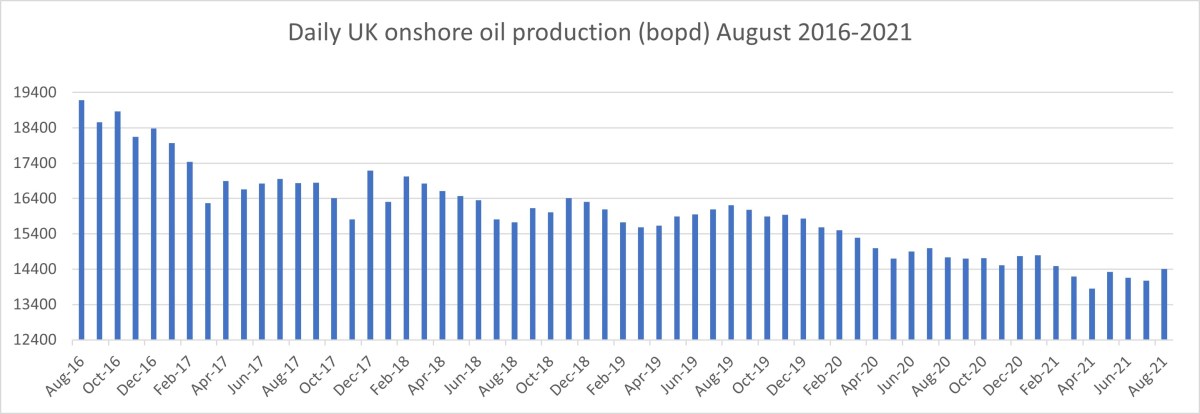
The UK’s newest official production site, Horse Hill in Surrey, was described six years ago as potentially world class, but this year it was likened by its owner to a “talented but troublesome teenager”.
UKOG said in April that production at Horse Hill had been “less than hoped for”. By August (the most recent public figures available), production had fallen to an eight-month low of 82 barrels of oil per day and the site dropped to 11th in the UK onshore rankings, down from fourth in May 2020. UKOG scaled back plans for storage of crude oil at Horse Hill by more than 80%. One of the partners in the licence, Alba Minerals, downgraded the value of its investment by more £1.43m.
Total UK oil production, in barrels per day, fell to a 31-year low in April 2021 but rose again by August. The onshore proportion of total UK production reached a peak of 2.37% in June 2021, falling back to 1.8% in August.
In February, Egdon announced the start of oil flows in a test at Wressle. Initial test production was above 884 barrels of oil per day, the company said.
Rathlin Energy carried out testing at its West Newton-A and West Newton-B sites in East Yorkshire. Formation damage was later reported at West Newton-B.
Legal challenges
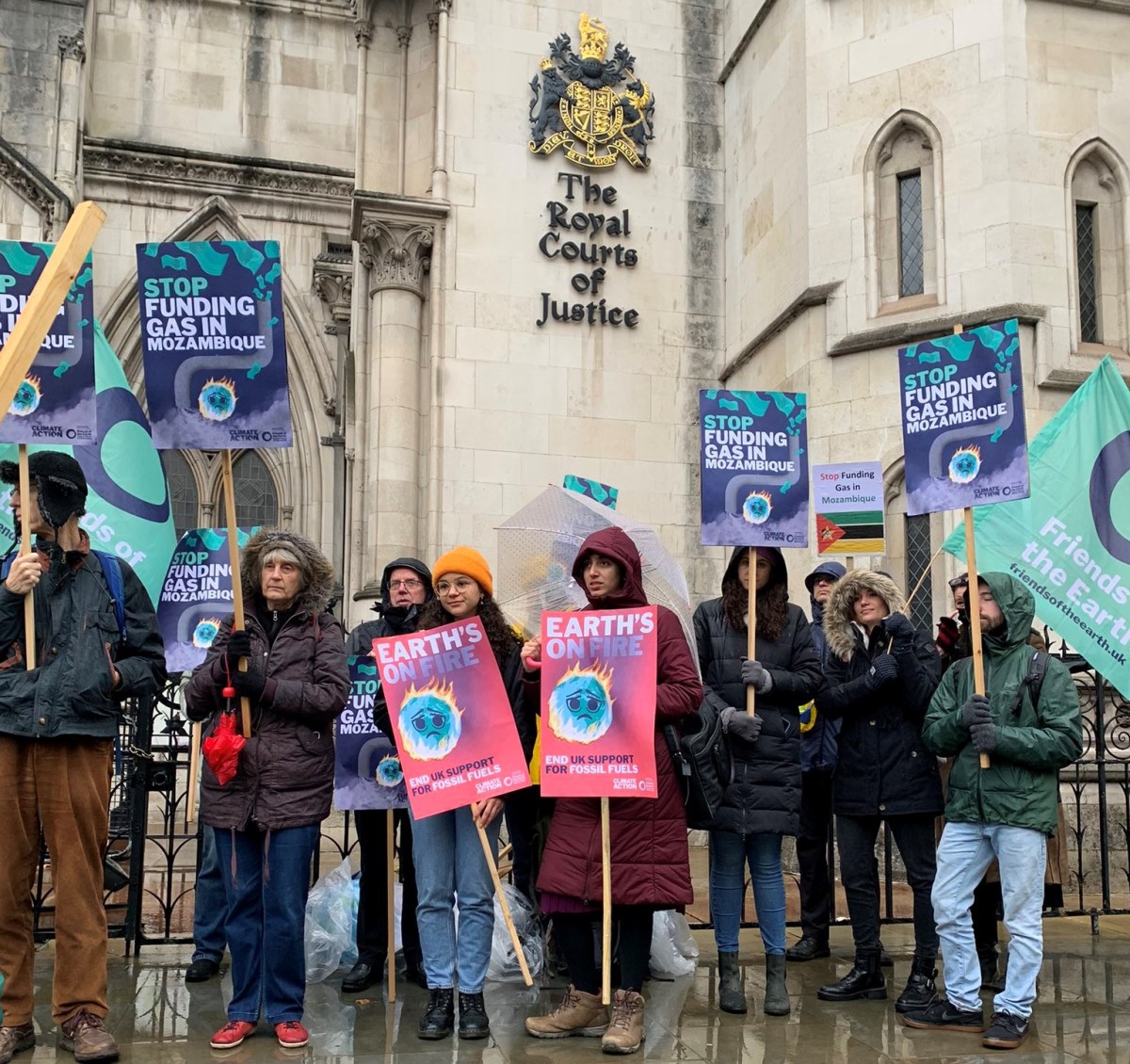
A legal challenge to the way Surrey County Council approved oil production at Horse Hill in 2019 went to the Court of Appeal.
The case, brought by local resident Sarah Finch, centred on the council’s failure to consider greenhouse gas emissions from the use of oil extracted at Horse Hill. Ms Finch argued that 20 years of oil production at Horse Hill could add an estimated 3.3 million tonnes of carbon to the atmosphere. The council argued that climate harm from oil production must be balanced against economic benefits. At the time of writing, the ruling had not been published.
The BBC was fined £28,000 for contempt of court after broadcasting footage from an earlier hearing of the case. This is believed to be the first time the court has penalised a broadcaster for recording and then showing footage from a remote hearing.
The government defeated a legal challenge brought by Greenpeace in Scotland’s senior court over granting permission to BP to drill 30 million barrels of oil from the Vorlich field in the North Sea. Judges concluded that it could not be argued that oil and gas had any material effect on climate change. Greenpeace said it would appeal.
Three young campaigners said they would appeal after they failed to sue the prime minister over claims that he had not taken practical and effective measures to tackle climate change.
Friends of the Earth sued the government over $1.15bn funding for a gas scheme in Mozambique and three campaigners took the government to court over tax breaks for the oil and gas industry in the North Sea. Rulings on both cases are still awaited at the time of writing.
Climate policy and warnings
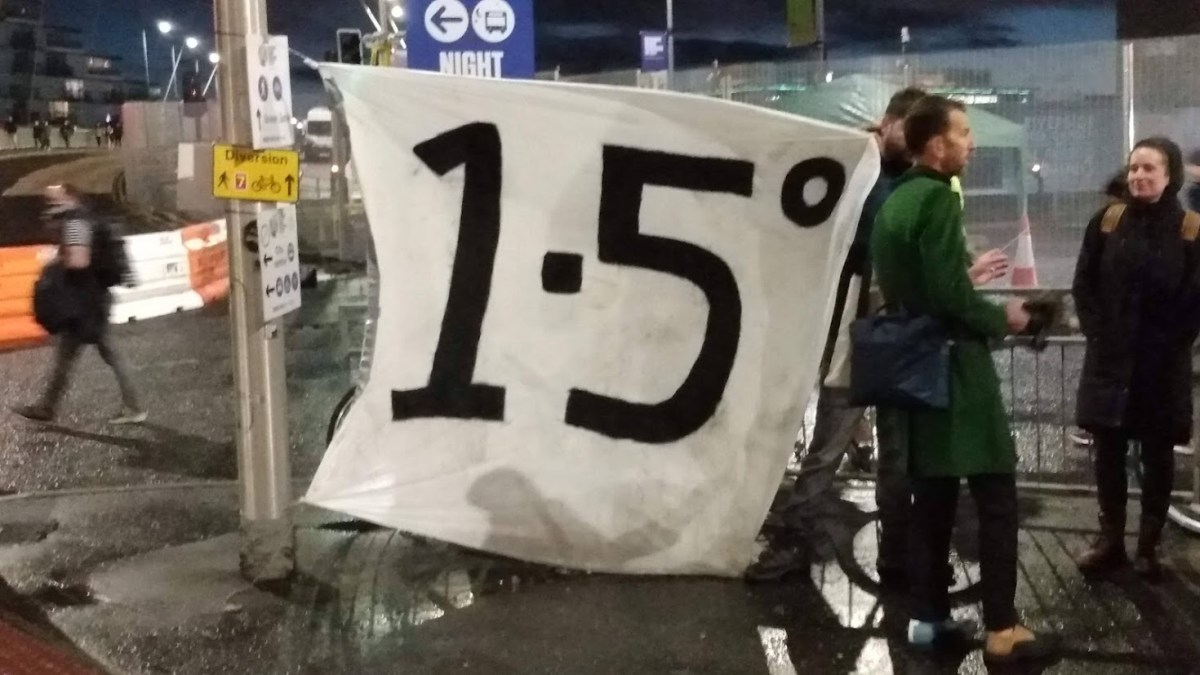
A report by the Intergovernmental Panel on Climate Change, published in August, was described as a “code red for humanity” by the UN Secretary-General Antonio Guterres. The report said a 1.5C increase in global temperature could be reached by 2031. Immediate, rapid and large-scale cuts in greenhouse gas emissions were needed to limit warming to 1.5C, it said.
The respected International Energy Agency said development of new oil and gas fields must stop in 2021 if the world was to meet its goal of net zero carbon emissions by 2050. It called for a massive jump in investment in low carbon technologies.
Similar conclusions came in the UN Environment Programme (UNEP) 2021 Production Gap Report, which found that reported fossil fuel production planned by national governments “vastly exceeded” the limit needed to keep global temperatures at safe levels.
Another UNEP study found that cutting methane from oil and gas sites was vital to limiting global warming to 1.5C. In a separate report, it said plugging leaks in oil and gas infrastructure would significantly cut methane emissions at little or no cost. The problem in England was revealed by a study form the Clean Air Task Force which recorded “significant” methane emissions at UK onshore oil sites.
Friends of the Earth and the New Economics Foundation calculated that emissions from 40 planned fossil fuel projects would be nearly three times as much as the UK emits in a year, while the Tyndall Centre concluded that carbon capture and storage, one of the key mechanisms relied on by the government, would not solve the climate crisis.
In the days before the start of COP26, the UK government published its net zero strategy, setting out how it intended to halve UK emissions in just over a decade and reach net zero by 2050. Its advisor, the Climate Change Committee, described the strategy as a “genuine step forward” but said there were gaps in funding and implementation, which could blow the strategy off course.
Also in 2021, the CCC recommended a climate review before any lifting of the fracking moratorium and it said the planning system just must be used to deliver net zero.
In a landmark ruling, Shell was ordered to cut greenhouse gas emissions by 45% by 2030 by a Dutch court. The company also withdrew from a controversial new oil field at Cambo off Shetland and within a few weeks those plans were paused. Campaigns had described the plans to open a new field, possibly containing 800 million barrels of oil, as a “climate obscenity”. The Scottish first minister, Nicola Sturgeon, said Cambo should not get the greenlight. The Scottish government also said it would no longer support unlimited recovery of oil and gas.
A public consultation began in December on government plans for a new checklist to assess whether future onshore and offshore licences aligned with wider climate objectives
Losses rise
Egdon reported a £4.75m loss for the year to July 2020, blaming the Covid-19 lockdown and its impact on commodity prices, while IGas saw revenue fall by nearly half in 2020 following production cuts and a falling oil price.
UKOG reported an operating loss of £1.2m for the six months to the end of March, a small increase from the same period in 2020 (£0.90m loss). But its subsidiary, Horse Hill Developments Ltd, which operates the Horse Hill site, declared a loss of £17.8m in the year to September 2020.
Angus Energy reported no earnings from the sale of oil in the six months to March 2021, while Rathlin Energy, based in East Yorkshire, made a loss of £1,015,920 in 2020, slightly below the loss in the previous year (£1.020.953).
Perenco UK Limited, the operator of the UK’s largest onshore oil field, announced losses of more than £100m in 2020.
Cuadrilla’s owner, the Australian mining group, A J Lucas, was back in profit in the six months to December 2020, partly thanks to tax credits from the “largely non-operational” fracking site at Preston New Road.
Union Jack Oil became the biggest investor in the Biscathorpe oil licence in Lincolnshire, operated by Egdon Resources. But Alba Mineral Resource withdrew its stake in Angus Energy’s Brockham licence in Surrey and Lidsey in West Sussex.
People

Many tributes were paid to the anti-fracking campaigner, Ian Crane, who died after a long illness in February. There was also much praise for the campaigner and opponent of onshore oil and gas Max Rosenberg, who died in May.
In January, the former energy minister, Kwasi Kwarteng, became business secretary, replacing Alok Sharma, who moved to work fulltime as COP26 president.
Lee Rowley, who opposed Ineos plans for shale gas exploration in his North East Derbyshire constituency, was appointed a junior minister at the Department of Business, Energy and Industrial Strategy.
Michael Gove was appointed local government secretary with responsibility for the still-awaited decisions on Woodsetts and Ellesmere Port shale gas plans.
Reports from the US said the Breitling Energy chief executive and fracking commentator, Chris Faulkner was sentenced by a court in Texas to fines of £92,446,376 and 15 years in prison.
Repurposing, reformation and renewables
IGas announced plans to produce grey hydrogen from methane using steam reformation and submitted plans for its sites at Bletchingley and Albury in Surrey. The company said early operations would not capture the carbon dioxide produced. The company was accused of being misleading and the Weald Action Group described the plans as an attempt to greenwash continued extraction of unabated methane.
The head of the UK’s largest hydrogen association resigned, saying even blue hydrogen (made with carbon capture and storage) risked locking the country into fossil fuels. A government consultation on a low carbon standard for blue hydrogen opened in August. It has not yet reported. A study published that month concluded that blue hydrogen could be 20% worse for climate than burning methane.
In April, Newcastle University announced a partnership with Cuadrilla, IGas and Third Energy to investigate whether UK boreholes could be turned into deep science laboratories. In December, IGas announced it had joined a project with three universities to store carbon dioxide and hydrogen in old oil wells.
IGas was also granted planning permission for a geothermal scheme in Stoke on Trent. It also signed an agreement with CeraPhi Energy for geothermal projects in existing oil and gas wells and announced a partnership for solar farms.
Europa Oil & Gas signed an agreement with Causeway Geothermal to carry out studies to assess the potential of West Firsby as a geothermal test site. See also renewables plans by Third Energy in North Yorkshire.
What didn’t happen
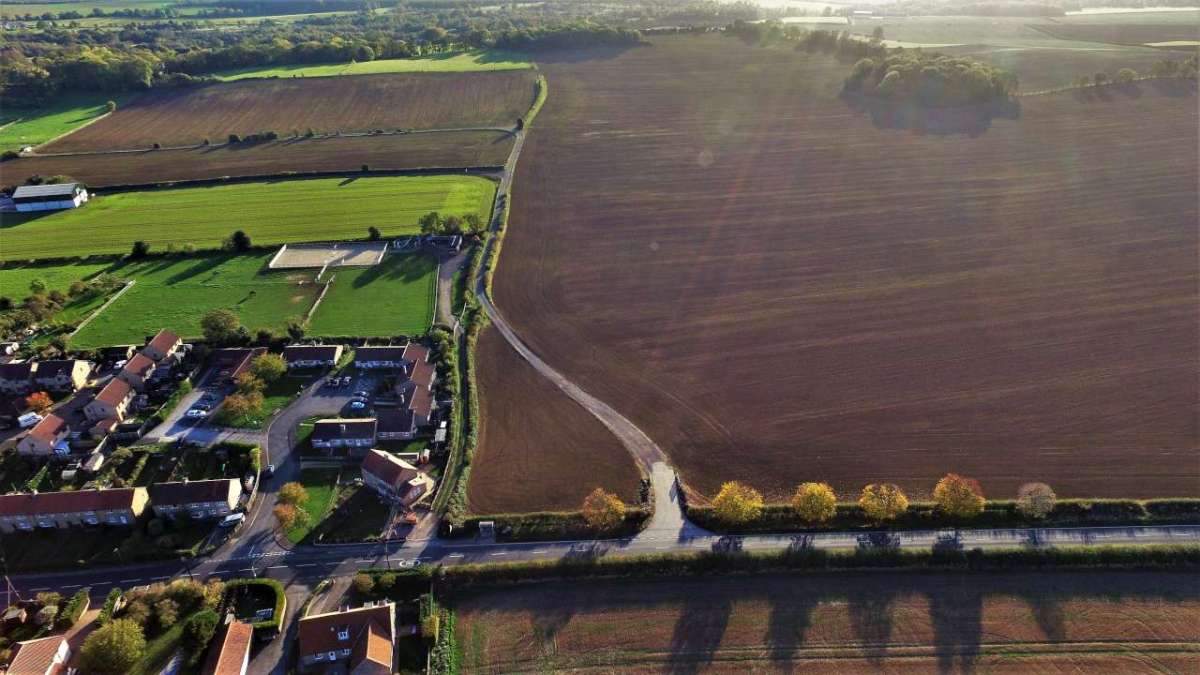
Planning permission expired at Ineos’s shale gas sites at Harthill in south Yorkshire and Bramleymoor Lane in Derbyshire, without any work going ahead. Both permissions had been granted following public inquiries when Ineos appealed against what it said were delays in local authority decision-making.
UKOG did not drill two new production wells at its Horse Hill site in Surrey, announced in January 2021. The company said the wells, targeting the Portland (HH-3) and Kimmeridge (HH-4) formations would be drilled following operations planned in its Turkish licence for the first six months of the year. In August, UKOG announced drilling problems in Turkey.
In December, Angus Energy announced that a side-track well at Saltfleetby would be delayed until 2022.
The government missed its own deadline on shale gas decisions at Woodsetts and Ellesmere Port by a year in April.
At the time of writing, there has been no decision from the public inquiry into plans by UKOG to drill for oil at its proposed Loxley site, near Dunsfold in Surrey. Opponents told the online inquiry the final section of the route to the site was “inherently unsuitable” and the site was “outlandish” in a sensitive landscape. Next month, residents are planning to stand on common land at Pratts Corner on the proposed site route to demonstrate that large lorries would have to encroach on the verge.
Thank you and please keep in touch
DrillOrDrop is very grateful for news about the onshore oil and gas industry across the UK. Please let us know about events and key issues that you think we should be reporting on. Contact here.
- Look out for our article on what to watch for in 2022.

A “No” vote does not mean to say it is the correct vote!,
Most of the people who use energy, who is to say everyone, Most were are are ignorant in the understandings of investment of such!, you cannot put the investment in a coffee shop, wealth management, a jewellery shop or similar in to the same mindset of an energy company! Most picket, heckle and protest against energy companies!, but we all use them, we complain when the price at the pump goes up, the price of essential groceries goes up, the increase in energy poverty is rising, but the exact reasoning on why these are affordable at the moment!, The energy companies allow it so!!
Turn off the North Sea gas and the lights with go out, not forever but just enough time for up to make a deal with the Norwegians, Qatari’s of Russians! After that our security and investment is long gone!! Another industry gone to the anti’s agenda!
In hind sight, I cannot wait for $200 a barrel, I’ll watch my monitor an cash in!, but it won’t be home produced and the anti’s and nimby’s and bitter lot. Will still expect the government to fork out for NHS, Child Support, Free Prescriptions. Eye tests, Bus Passes and the link…. Rule Britannia, I’d say we are being (Ruled by the rest of the world, Cheerio Britannia)!!
Yes and now Look where we are Totally at the mercy of our Foreign neighbours. energy Prices going through the roof and not a dam thing we can do about it and all because some idiots want to go Green. unfortunately to do that you need the rest of the world to follow suit and as any idiot can see that’s not happening. so we find ourselves in this crisis of our own making. which is all the more galling Knowing we could have been self sufficient had our so called planners had half a brain cell between them.
So nobody does anything about global heating, Eli-Goth and Gasman. What a brilliant solution! And how simple!
If the law updated the building regs and insisted that ALL new housing was built so as not to need fossil fuels, ie compulsoey PV / pumps, we would then see that at last we had a government for the people, and one that was not pandering to the oil and gas industrry, giving them huge subsidies of public tax payers money without which they would fail. Perhaps we could start to really believe that politicians cared about keeping humans and other creatures alive on this planet.
Huge subsidies of tax payers money?
With fuel duty at over £20 billion per year in UK, where are the NET subsidies? Total confusion/conflation with what incentives are offered to companies to locate in a certain place and whether the industry is subsidised. (If incentives are offered to any industry, then the question should be why is that done. The answer is pretty obvious, because they offer a high return to the incentive.)
Obviously a weak point for the antis with subsidies galore for renewables that they feel they have to trot out this fake news repeatedly to act as a smokescreen. Of course, Cash for Ash has been forgotten? Nope, it has not. And now there is fake petrol that costs the motorist as much and reduces miles per liter. Another subsidy for renewables and funded by the consumer, who also has to pay more for their food as wheat prices are increased-a double subsidy. How about those energy bills with a green levy added?
As for nobody doing anything, more fake news. It is quite apparent a lot is being done, and much of it by whom? The fossil fuel industry!
Where is the investment coming from to increase hydrogen production? All colours of hydrogen, even turquoise.
By the way, houses sell if they meet the buyers requirements. Governments are elected by the people to represent the majority of the people, not a few activists. Everyone I know in the building trade are suggesting hydrogen will be their big change in the next few years, and are just awaiting supplies to be available. Much better solution, then new housing AND surrounding older housing can all be switched from the same supply, and motor vehicles can be fueled from the same material.
I suggest you look at the context of my posting, Martin. Your English should be able to cope with that without explanation from me. You irrelevantly comment that a lot is being done (about global heating?) and that by the fossil fuel industry. My “news” you comment is “fake”. Firstly no “news” is offered by me. We’ll pass over your favourite Trumpian epithet “fake” therefore as, yes, fake.
If you really think the industry is acting against global warming for any other reason than that it has been forced into such action, basically greenwashing, then the industry has indeed convinced its fossil fools of its integrity.
With best wishes for the new year, and perhaps better arguments or, let us hope, capitulation.
And off he/she goes into semantic gyrations, attempting to defend the indefensible. New year coming, same old activist evasion after posting fake information, when correct information on the subjects has been posted on this site many times by others (eg. East Coast and North West Coast, Teeside and Humber projects.) I actually find such projects a little more interesting than whether a lorry has had its wheels washed, or the height of a temporary structure. .
.
Maybe 2022 will bring some attempt to get to know something about the subject, maybe even quoting accurate information and even, maybe, leaving out the political motivation behind taking part-but I suspect not.
Industry is investing, 1720, as they can see an opportunity to make a profit-shock/horror. How much extra will the individual pay for that profit? That will be a real shock/horror. Quite simple, if industry does not invest there will be no progress and the activist will be able to continue to enjoy using their plastic keyboard. I prefer industry invests and activists are redundant.